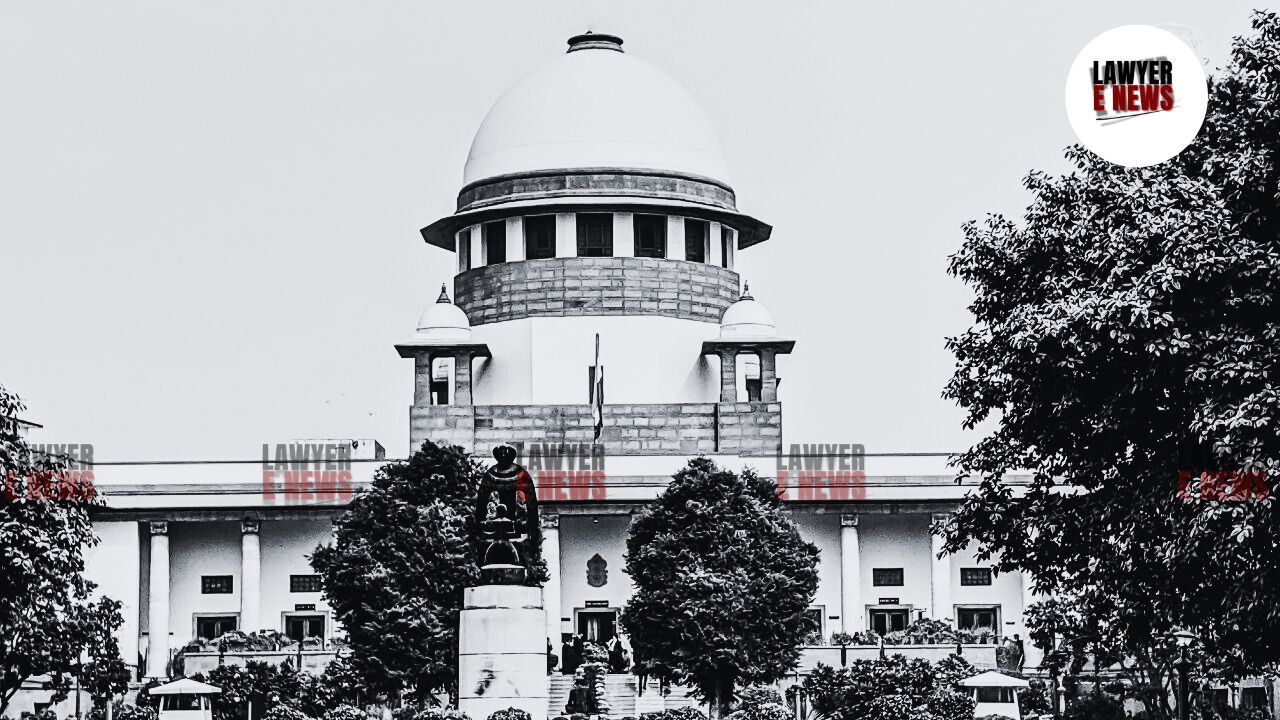-
by Admin
16 February 2026 1:47 PM



“The principle of res judicata is not a procedural formality—it is the cornerstone of legal finality. SEBI cannot ignore this to suit its convenience.” - On April 7, 2025, the Supreme Court of India delivered a scathing judgment against the Securities and Exchange Board of India (SEBI), holding it guilty of violating the principle of res judicata by reopening and re-penalising entities involved in a securities fraud case. The Court set aside SEBI’s 2018 disgorgement order and quashed the Securities Appellate Tribunal’s (SAT) direction asking SEBI to compensate two investors.
Justice Sanjay Kumar, writing for the bench along with Justice K.V. Viswanathan, firmly held that SEBI cannot pass multiple final orders on the same cause of action, especially when the earlier one has already attained finality.
“When SEBI Had Already Penalised the Fraudsters, It Cannot Add New Penalties Four Years Later”
The case revolved around a long-standing securities fraud involving M/s. Vital Communications Ltd (VCL), which had misled the public with false advertisements about share buybacks, bonus issues, and preferential allotments to create artificial demand.
Initially, SEBI passed an order in 2014 banning 24 entities connected with VCL from accessing the securities market for up to three years. That order was not appealed and was fully implemented.
But surprisingly, SEBI passed another order in 2018 on the same 2012 show-cause notices, directing disgorgement of ₹4.55 crore with 10% annual interest — essentially imposing a second round of punishment.
“When the earlier order dated 31.07.2014, on the same cause of action... attained finality… the later order dated 29.08.2018 could not have been passed,” the Court ruled.
“Res Judicata Applies Not Just to Courts, But Also to SEBI – Finality Matters”
Responding to SEBI’s claim that res judicata (the principle that you can’t litigate the same issue twice) didn’t apply to regulatory proceedings, the Court gave a sharp rebuttal:
“The principle of res judicata is based on public policy and justice… It would not be permissible for SEBI to disturb such finality by passing a fresh order on the very same cause of action.”
Citing precedents like Hope Plantations Ltd. v. Taluk Land Board and Devilal Modi v. State Tax Officer, the Court reaffirmed that res judicata applies to judicial, quasi-judicial, and administrative authorities alike.
“Tribunal Was Wrong to Reward Fraudsters With Costs of ₹2 Lakhs Each”: SC Slams SAT for Misplaced Leniency
In the 2018 disgorgement order, SEBI also denied compensation to the complainants Ram Kishori Gupta and Harishchandra Gupta — investors who bought VCL shares based on fraudulent advertisements. SEBI held that compensating them selectively would be unfair, as many others were similarly affected, and they had bought shares in the secondary market, not directly from VCL.
However, the SAT overruled this, directing SEBI to pay ₹18.25 lakhs to the couple from the disgorged amount or its Investor Protection Fund. The Supreme Court found this completely unsustainable:
“It was not for the Tribunal to interpret its earlier order… and give it a different colour, contrary to its plain meaning.”
“The direction of the Tribunal practically rewarding them [fraudsters] with costs of ₹2,00,000/- each was entirely unjustified.”
Disgorgement Set Aside, SEBI’s Liability Quashed, But Fraudsters Not Entitled to Costs
The Supreme Court issued the following directions:
SEBI’s disgorgement order of 28.09.2018 stands quashed as barred by res judicata.
SEBI cannot be asked to compensate Ram Kishori Gupta and her husband; their claim was already decided in 2013.
SAT’s order directing compensation and costs to fraudsters is set aside.
However, SEBI’s challenge to the setting aside of disgorgement was rejected, since the 2018 action itself lacked jurisdiction.
“SEBI cannot pass multiple final orders on the same cause of action… Doing so tramples upon the sanctity of judicial finality,” the Court reiterated.
Date of decision : April 7, 2025
